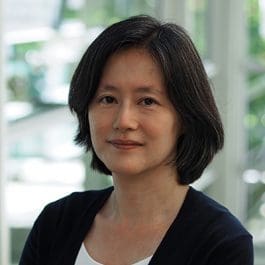
The multidisciplinary nature of the Urban Systems program reflects how urban infrastructure projects are actually designed and managed, where people with expertise in urban planning and engineering come together to address large and complex issues. With that as a starting point, our program brings together faculty from both the UBC School of Community and Regional Planning and the Department of Civil Engineering. This collaboration is essential for understanding how urban systems function – and could better function – to support society and social goals.
Our program has been designed to take advantage of the synergies between these two academic disciplines and ensure students have easy access to expertise in both. In their first semester, students take courses on urban systems and society and urban systems planning to understand the social context for how infrastructure is designed and managed. This provides a strong foundation for the technical engineering classes that follow.
In addition, the courses offered through the UBC Sauder’s Robert H. Lee Graduate School distinguish our program from a traditional technical masters’ degree. Many people enter the workforce with strong technical skills, but they also need business skills to succeed in positions with greater responsibility. The UBC Sauder classes give our students essential business and leadership skills, providing valuable training for advancing into senior-level and management positions.
However, students learn not just from their instructors but from their classmates, who come to the program from a wide range of technical and urban-planning backgrounds and with several years of work experience. Our program’s emphasis on teamwork and project work also helps to build the skills our graduates will use as leaders throughout their careers.
I’ve been at UBC since 2004. My research is on ways to make communities more resilient to the impacts of earthquakes, floods, oil spills and other disasters. Every disaster I study convinces me of the critical role our urban infrastructure systems play in making our communities more disaster-resilient, as well as the importance of being able to work at the interface of the technical and social issues that need to be considered in infrastructure planning and management.
Experience
Stephanie E. Chang is a co-director of Urban Systems and a UBC professor with a joint appointment in the School of Community and Regional Planning and the Institute for Resources, Environment, and Sustainability. She held a Canada Research Chair (Tier 2) in Disaster Management and Urban Sustainability from 2004 to 2013. Much of Dr. Chang’s work aims to bridge the gap between engineering, natural sciences and social sciences in addressing the complex issues of natural disasters. Her research has ranged from the empirical investigation of major urban disasters to computer modelling and analysis of risk-reduction strategies. Dr. Chang is particularly interested in issues of disaster recovery and resilience, urban infrastructure systems and cities of the Pacific Rim. Before joining UBC, she was a research assistant professor in the Department of Geography at the University of Washington. She has also worked as a researcher and consultant with EQE International in Los Angeles and Seattle. Dr. Chang received her BSE in civil engineering (1989) from Princeton University and her PhD in regional science (1994) from Cornell University.
Application Deadlines
The online application portal for the January 2025 has closed.
Get ready to apply!
Admissions for the 2026 intake will open on January 1, 2025.
How to Apply


